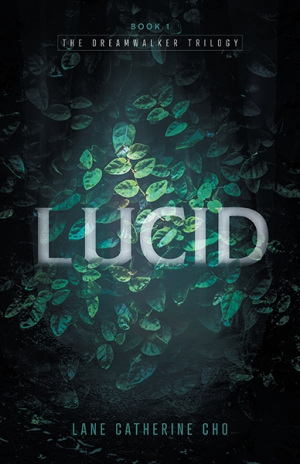Lucid
Lucid is an absorbing supernatural novel in which a teenage girl works to catch a murderer.
In Lane Catherine Cho’s intriguing mystery novel Lucid, a girl enters a killer’s dreams.
The first installment in the Dreamwalker trilogy, the book revolves around May, a sixteen-year-old whose life changed when she was eight and she lost her parents and began to experience other people’s dreams and nightmares. Then her uncle adopts her following years in foster care and May moves to a new town with him. There, she begins to share dreams with an unknown murderer who targets teenage girls. At the same time, she has to make new friends, contend with bullies, and handle her crush on a mysterious boy.
The rural setting is made tangible through evocative descriptions—of the smell of damp leaves and of the rough, gnarled texture of a willow tree. Here, everyone knows each other, and there is only one business of each kind—one gardening center, one coffee shop. It doesn’t take May long to be familiar with everyone too—though the killer’s identity remains a mystery.
May’s new relationships bring out different sides of her; together, they give her a sense of belonging. Two teenagers—bubbly Fee and steadfast Jackson—befriend her at once. And she begins a romance with Elan, an aloof boy whose ability to lucid dream means that he’s aware when May appears in his dreams. Their first interactions rely on tired tropes, with Elan insisting that he isn’t good or safe for May to be around, but once they become more vulnerable with each other and begin to share dreams, their bond becomes genuine and touching. Elsewhere, the tentative love between May and her uncle, and her increasing confidence in her place in his life, is poignant.
The first half of the book is consumed by May’s past and her strengthening new relationships. Still, reminders of the killer’s continued presence are dropped throughout; intrigue is maintained. When May and her friends begin to hunt the killer in earnest, excitement increases and interpersonal conflicts disappear: the teenagers form an engaging team of opposites. Their investigation into the murders is thorough; if successful, it could allow May to truly settle into her new home.
But while May, who narrates most of the book, is developed in thorough and consistent terms, and while her friends have rich, distinctive personalities, other characters—including a bully, Chelsea—are inconsistent. Chelsea’s perspective clashes with the relentlessness of her cruelty, rendering her expressions of remorse empty. And one of May’s friends has an abusive father; the same issue arises with his part of the tale.
Ending on a cliffhanger, Lucid is an absorbing supernatural novel in which a teenage girl works to catch a murderer.
Reviewed by
Carolina Ciucci
Disclosure: This article is not an endorsement, but a review. The publisher of this book provided free copies of the book and paid a small fee to have their book reviewed by a professional reviewer. Foreword Reviews and Clarion Reviews make no guarantee that the publisher will receive a positive review. Foreword Magazine, Inc. is disclosing this in accordance with the Federal Trade Commission’s 16 CFR, Part 255.

